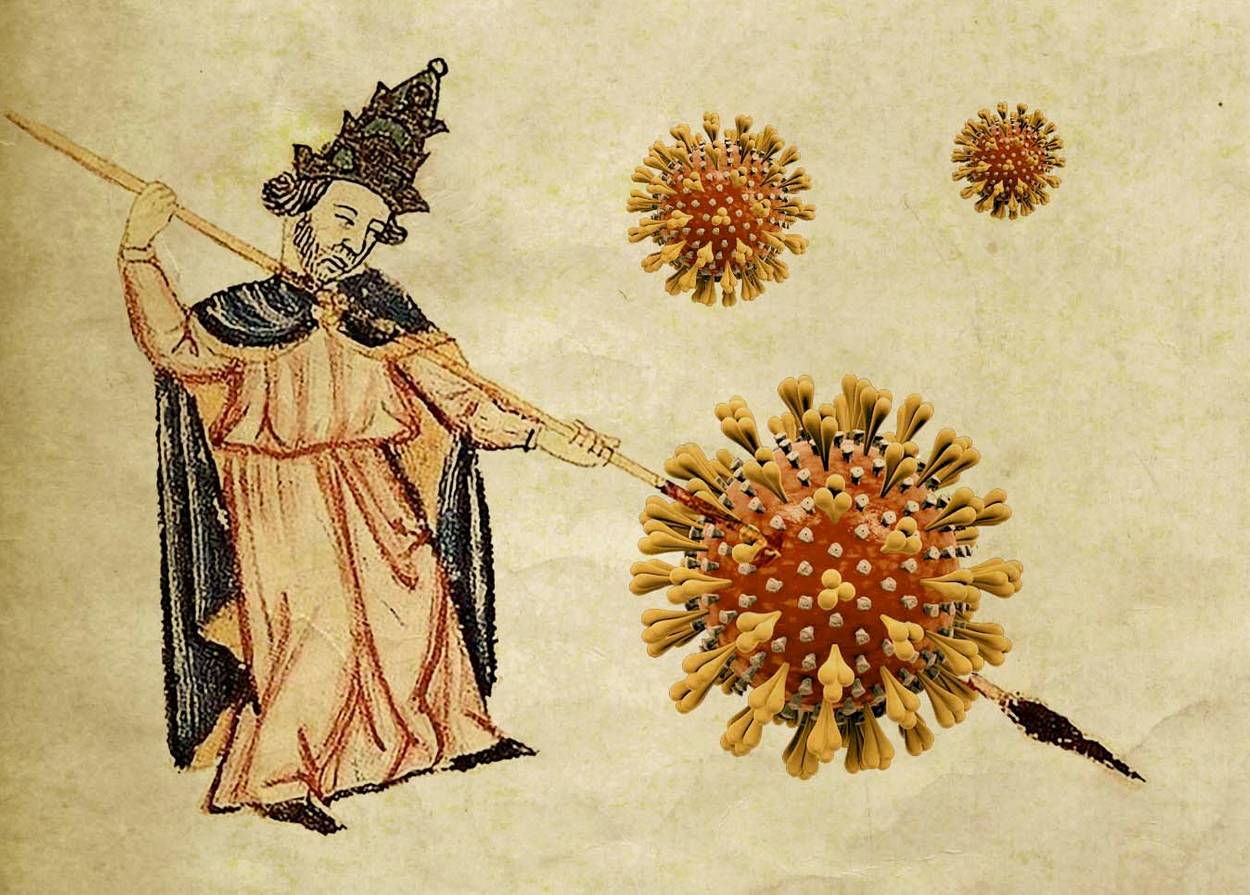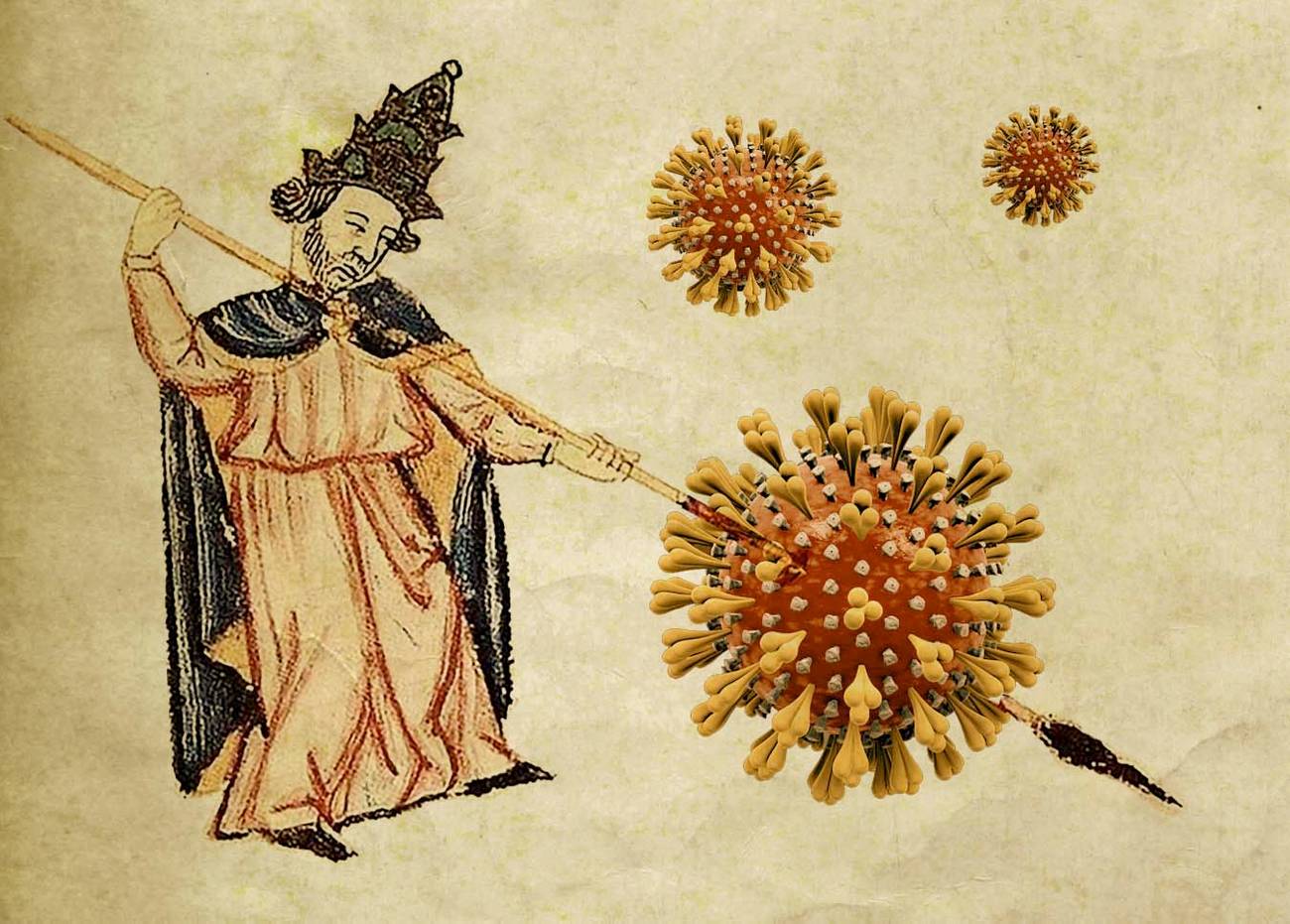What Does the Bible Teach Us About Reopening America?
Conflicting advice from two plague-time leaders




For centuries, people have turned to the Hebrew Bible for guidance in matters spiritual and temporal. From practical business advice to lessons in integrity, modern readers can harvest much fruitful wisdom drawn from biblical jurisprudence and the teachings of the prophets. What, then, does the Bible say about handling a plague?
If you’ve spent any time talking to rabbis, you wouldn’t be surprised to learn that the Bible offers us not one but two approaches to tackling a major pandemic, and that these approaches are diametrically opposed. One involves the pursuit of peace; the other is marked by violent zealotry. Mayors, governors, and heads of state who turn to the holy book for inspiration on what to do next will meet two ancient officials, each with an attitude that finds many supporters—and many detractors—in our politically contentious moment. They are Aaron and Phineas, and they are both priests, the ultimate public servants.
Moses’ brother, Aaron, took up the mantle of high priest and supervised the service of the Tabernacle throughout Israel’s sojourn in the wilderness. As expressed in the Bible and elaborated by the talmudic sages, Aaron was a champion of peace, seeking to establish communal unity through small acts of compassion. So when a plague hit his people, his prescription, recorded in the Book of Numbers, was a calming one: sweet smelling incense, designed as an antidote to the violent fury that came with facing an incurable illness.
His genteel approach made a mark. Centuries later, the sage Hillel the Elder urged his disciples: “Be of the students of Aaron, loving peace and pursuing peace.” Avot DeRabbi Natan details Aaron’s pursuit of peace: When he would encounter two people quarreling, Aaron would privately approach each quarreler, insisting that the other intended to apologize. Thus, both parties would be appeased and seek each other’s friendship. When the plague hit, he took the same approach, insisting first and foremost on people’s physical, emotional, and spiritual well-being.
His grandson Phineas is remembered today mainly for a single episode that occurred when an Israelite named Zimri, the son of Salu, sinned by taking a Midianite woman. In retribution, God smote Israel with a terrible plague. The Book of Numbers records Phineas’ zealous response: The young priest seized a spear and viciously impaled the sinners, thus arresting the plague from upon the House of Israel.
The Talmud and Tosefta record that Phineas was Israel’s first anointed warrior priest, the Kohen Mashuach LeMilhama, with other sources identifying him as the ancestor of the warlike Hasmoneans who governed Judah by the bow and spear for over a century.
So should our own contemporary leaders be more like Phineas or more like Aaron? Should they focus on effective measures to end our current plague, no matter how harsh, or should they invest considerable resources in making sure their charges are comforted and happy? As always with the Torah, it’s complicated.
Take Phineas, for example. After his act of zealotry, the Almighty rewards Phineas with “a covenant of peace.” Later, in the Book of Joshua, when the tribes east of the Jordan had seemingly erected an illegal altar, the western tribes sent Phineas to reprimand the easterners, counting on his reputation as a murderous zealot. However, when the suspected altar was revealed to be a monument, peace prevailed, and Phineas ends up blessing the easterners. The talmudic sage Rav Ashi tells us that it was at this point, decades after Aaron and his sons were first anointed as priests, that Phineas achieved real priesthood, abandoning his warlike wrath and connecting to his famous ancestor’s tradition of loving and pursuing peace.
So, who should carry the day when we talk about COVID-19? The warrior priests who patrol locked down cities, breaking up large gatherings and punishing anyone who doesn’t observe social distancing? Or the healers who offer words of hope and blessing in the face of death, using their divine calling to unify physically distanced individuals? Is it time for Phineas, or for Aaron?
The Bible tells us that the answer is necessarily both. The righteous indignation of Phineas has its advantages, and is sometimes inevitable, yet it is ultimately the virtue of kindness that prevails. As Phineas himself discovered later in life, compassion can be a more powerful tool than any implement of war in unifying a people facing national upheaval. May we realize this high ideal in our moment of crisis.
Baruch-Lev Kelman is a junior at Yeshiva University, where he is majoring in Jewish Studies and minoring in Architecture.